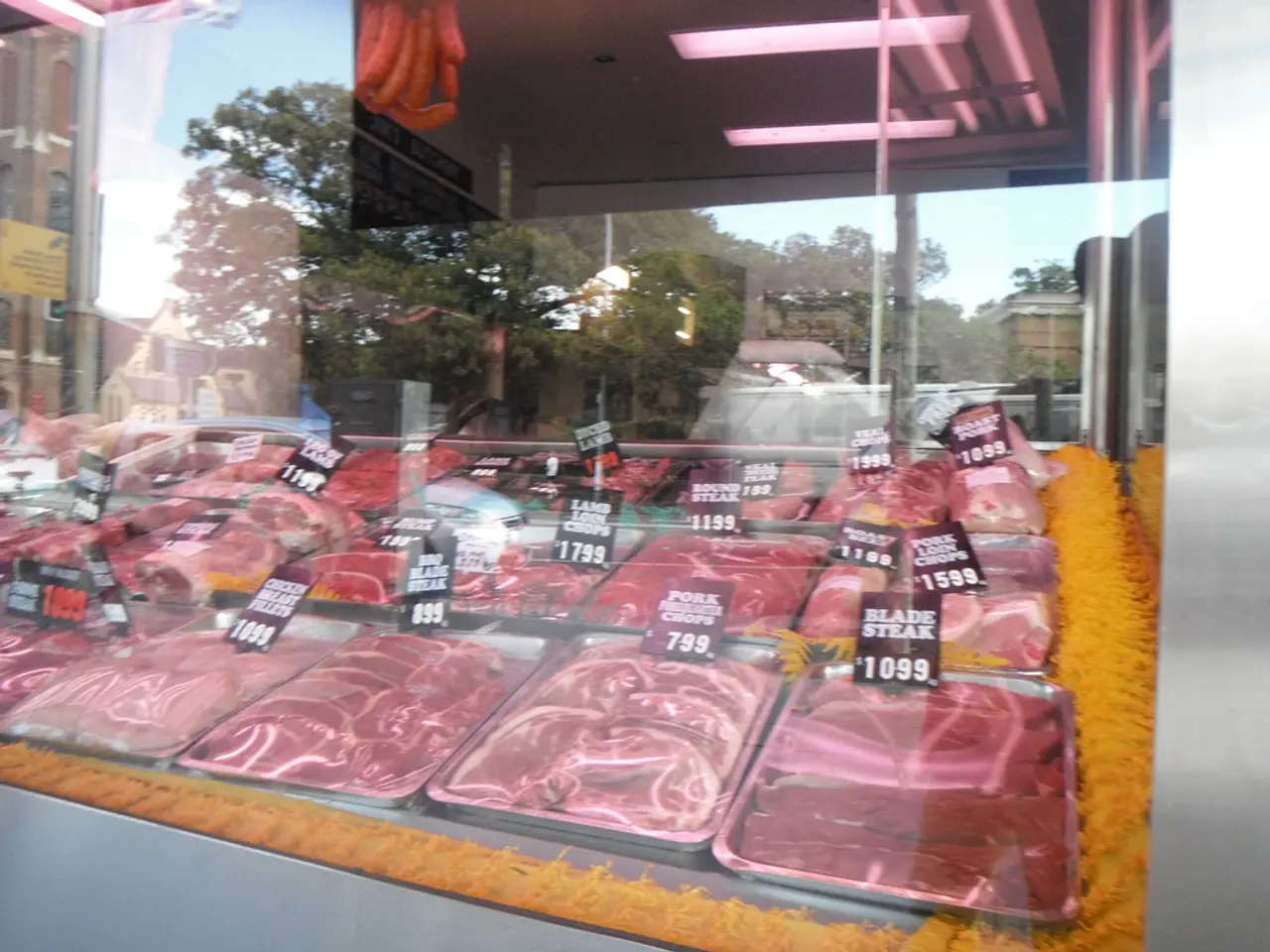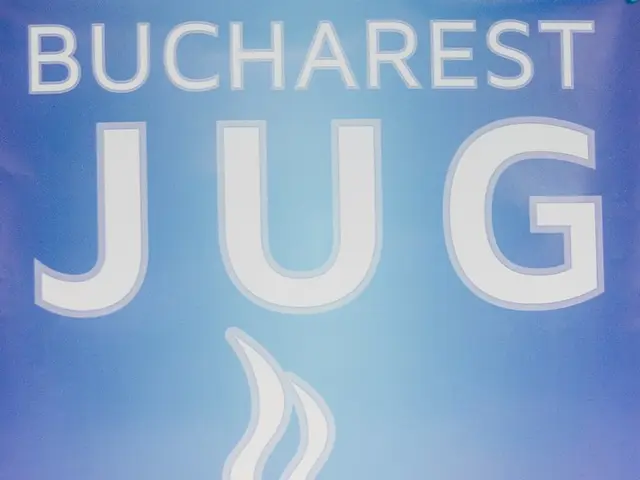Berlin avoids Döner strike action – union adopts similar approach
In the heart of Baden-Württemberg's Murr region, strikes at Birtat Meat World SE, a major döner meat producer, have sparked concerns about potential supply shortages and price hikes in the döner kebab industry, particularly in Berlin and Brandenburg.
Workers at Birtat have been demanding a monthly wage increase of €375, a standardized entry-level salary of €3,000 gross, and the introduction of a transparent, company-wide collective pay agreement[1][3][4]. These demands, spearheaded by the Food, Beverages and Catering Union (NGG), aim to secure fair wages and working conditions for the diverse workforce, which includes immigrants from Turkey, Romania, and Bulgaria[2].
The strikes, ongoing since early July, have disrupted production at Birtat, a market leader in the production of döner meat skewers throughout Europe, present "in almost every major city in Europe." The NGG's push for a collective bargaining agreement has been met with resistance, but after several rounds of negotiations, a historic wage agreement was reached[2].
Under this settlement, the starting wage will be set at about €3,000 gross per month for workers[2]. This marks a significant step towards fairer wages and working conditions in the döner meat industry[1][2][3][4]. However, the increased labor costs, combined with rising beef prices, may contribute to higher prices for döner kebabs[1][2].
The establishment of a works council at Birtat as early as September 2024 is another positive development[5]. Despite this progress, reports of intimidation attempts against the Betriebsrat Muzayfe Doganer, including threats to his wife, have raised concerns about the fairness and safety of the negotiation process[6].
Unionist Veit Groß believes that progress has been made in the meat industry with diverse workforces in recent years[7]. The NGG's fight for the first collective bargaining agreement in the döner meat industry is a testament to this progress and a step towards a more equitable future for workers in the industry.
[1] FAZ, "Streik bei der Fleischwarenfabrik Birtat: Kebab-Krise in Berlin und Brandenburg?" (2022) [2] NGG, "Birtat Meat World SE und NGG einigen sich auf Tarifvertrag" (2022) [3] Tagesschau, "Streik bei Birtat: Kebabproduzenten fordern Lösung" (2022) [4] Süddeutsche Zeitung, "Kebab-Streik in Baden-Württemberg: Birtat-Mitarbeiter fordern Tarifvertrag" (2022) [5] NZZ, "Birtat: Streik bei Kebabproduzenten in Baden-Württemberg" (2022) [6] Tagesspiegel, "Birtat-Streik: Gewerkschaftsführer bedroht" (2022) [7] FAZ, "Veit Groß: Fortschritte in der Fleischindustrie mit vielfältigen Arbeitskräften" (2022)
Finance and business sectors are closely watching the ongoing strike at Birtat Meat World SE, with potential wage increases and the introduction of a fair collective pay agreement potentially impacting the döner kebab industry's costs and revenue. The negotiation process, however, has raised concerns about fairness and safety amid reports of intimidation attempts.




